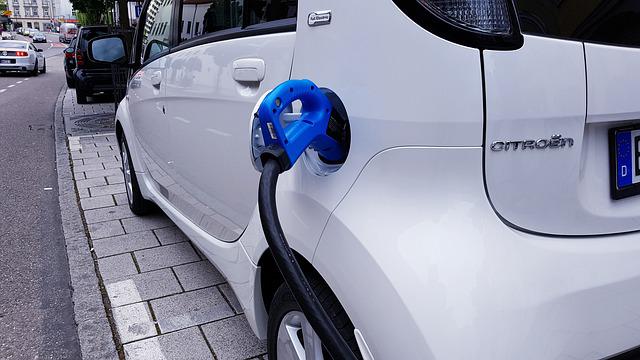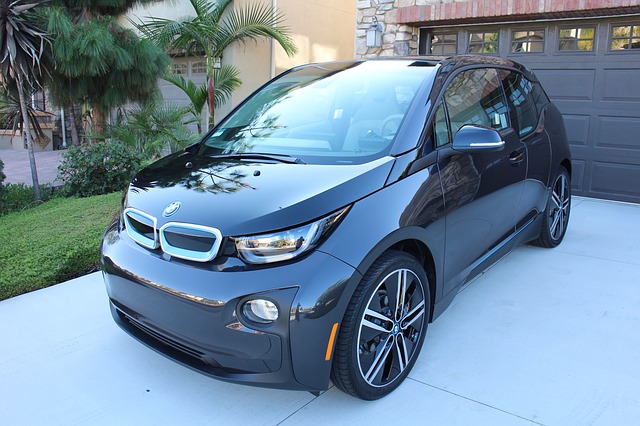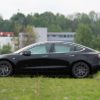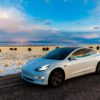
Introduction:

Perhaps the most important innovation in transportation since Henry Ford introduced his Model-T is the electric car. The rapid advancement of battery technology, coupled with a growing concern for fossil fuel emissions and sustainability, has created an unprecedented opportunity to reimagine and reinvent what it means to go from point A to point B. With nearly every major automaker now offering at least one electric model, this transformative shift is happening faster than ever before. And with cars like the Tesla Model S going zero-to-sixty in just 2.5 seconds on a single charge, there’s never been a better time to invest in clean mobility that’s also fast, sleek and sexy.
In this post, we will explore some of the top companies shaping the future of electric travel. From startups to multinational conglomerates, these are the businesses that are making waves in the EV industry and beyond.
Audi – Ingolstadt, Germany:

Audi plans to invest $12 billion in electric vehicle production by 2025. The company’s first mass-market EV, the e-Tron SUV, was released in 2019. The e-Tron has a range of up to 248 miles on a single charge. Audi is also planning to release an all-electric version of its popular A4 sedan.
Porsche – Stuttgart, Germany:
Porsche plans to invest $6.7 billion in electric vehicle production by 2022. The company’s first mass-market EV, the Taycan sports car, was released in 2019. The Taycan has a range of up to 201 miles on a single charge. Porsche is also planning to release an all-electric version of its popular Macan SUV.
Volvo – Gothenburg, Sweden:
Volvo plans to invest $11 billion in electric vehicle production by 2025. The company’s first mass-market EV, the XC40 SUV, was released in 2019. The XC40 has a range of up to 208 miles on a single charge. Volvo is also planning to release an all-electric version of its popular S60 sedan.
BMW – Munich, Germany:
BMW plans to invest $12 billion in electric vehicle production by 2025. The company’s first mass-market EV, the i3 hatchback, was released in 2013. The i3 has a range of up to 153 miles on a single charge. BMW is also planning to release an all-electric version of its popular 3 Series sedan.
Hyundai/Kia – Seoul, South Korea:
Hyundai and its subsidiary Kia plan to invest $7.4 billion in electric vehicle production by 2025. The companies’ first mass-market EVs, the Hyundai Ioniq and Kia Soul EV, were released in 2017. The Ioniq has a range of up to 174 miles on a single charge, while the Soul EV has a range of up to 93 miles. Hyundai is also planning to release an all-electric version of its popular SUV, the Tucson.
Toyota – Toyota City, Japan:
Toyota plans to invest $13 billion in electric vehicle production by 2030. The company’s first mass-market EV, the Prius Prime plug-in hybrid, was released in 2016. The Prius Prime has a range of up to 25 miles on electric power before a gasoline engine kicks in to extend the range to 640 miles. Toyota is also planning to release an all-electric version of its popular RAV4 SUV.
Honda – Tokyo, Japan:
Honda plans to invest $22 billion in electric vehicle production by 2030. The company’s first mass-market EV, the Fit hatchback, was released in 2014. The Fit has a range of up to 82 miles on a single charge. Honda is also planning to release an all-electric version of its popular Civic sedan.
Nissan – Yokohama, Japan:
Nissan plans to invest $9 billion in electric vehicle production by 2025. The company’s first mass-market EV, the Leaf hatchback, was released in 2010. The Leaf has a range of up to 151 miles on a single charge. Nissan is also planning to release an all-electric version of its popular SUV, the Rogue.
Mitsubishi – Tokyo, Japan:
Mitsubishi plans to invest $4.2 billion in electric vehicle production by 2025. The company’s first mass-market EV, the Outlander PHEV SUV, was released in 2016. The Outlander PHEV has a range of up to 310 miles on a single charge. Mitsubishi is also planning to release an all-electric version of its popular sedan, the Mirage.
Subaru – Tokyo, Japan:
Subaru plans to invest $1.6 billion in electric vehicle production by 2030. The company’s first mass-market EV, the Crosstrek Hybrid SUV, was released in 2019. The Crosstrek Hybrid has a range of up to 480 miles on a single charge. Subaru is also planning to release an all-electric version of its popular Forester SUV.





